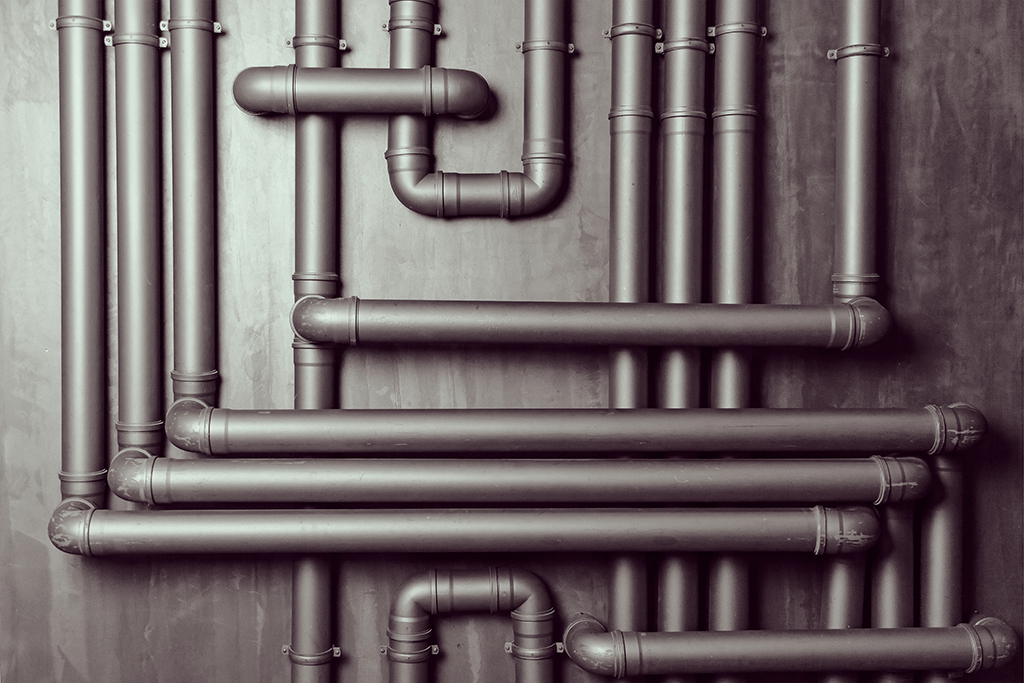Extreme weather is not typically something Las Vegas residents need to worry about often, although winters in recent years have come with surprisingly low temperatures. Despite often being sunny and mild, Las Vegas nights can be unexpectedly cold. Intense frosts are rare, but temperatures overnight regularly hover around the freezing point, especially in some elevated areas. Many NV residents can suddenly find themselves ill-equipped in the event of a sudden cold snap, and frozen, burst pipes may be an unfamiliar emergency.
If pipes burst in winter, a professional plumber will do their best to mitigate, repair, or replace damaged pipes with minimal disruption, but pipe repair is still an expense that you may want to avoid. Thankfully, there are ways to prepare for unexpected cold weather in Las Vegas, NV. Implement some, or all the following winter preparation tasks, to steer clear of an overly expensive plumbing service callout:
1. Insulate Pipes
There are many types of insulation available today. When it comes to pipe insulation, don’t just think about insulating exposed pipes. Adding insulation within walls, floors, and ceilings is a relatively inexpensive method of preventing freezing pipes within Las Vegas, NV homes. Instead of using traditional insulation, you can wrap your exposed pipes with fiberglass or silicone heat tape. Apply heat tapes directly to exterior pipes, and you can both insulate and slow down the freezing process if it begins. Choose heat tape with the help of a professional to make sure you’re using the right manufacturer-recommended products.
If you’re unsure which type is best for your property, a plumber can help you decide. Even light insulation can be incredibly helpful! Although, when it comes to insulation, the more, the better. The more you insulate, the less likely it is that your pipes will freeze and crack over winter. If in doubt, always get a plumbing company or professional to install it for you.
2. Disconnect Exterior Hoses
Outdoor spigots or hose bibbs are often the first to freeze when cold weather hits. If you still have your hose connected, residual water in the hose will freeze. Water in the pipes connected to the hose will do the same. Ultimately, this can result in pipe blockages, leaks, and bursts. Disconnecting the hosepipe before winter is just one small step you can take to prevent pipes from freezing. Ideally, you need to get rid of any residual water and shut off the outdoor water supply while it’s not required. A plumber can help you to locate any necessary valves to complete this task.
If you can’t disconnect outdoor plumbing from the water supply, you will want to follow steps to insulate it over winter. Measures may include covering it with foam insulation or using heat tape as suggested above. If your spigot is old and in need of replacement, you can ask a plumber to replace it with a frost-free model before winter arrives.
3. Keep Water Running
While this sounds drastic and sometimes counter-intuitive, ensuring that water is regularly flowing through pipes will prevent standing water from freezing. A small trickle of water from a faucet can be enough to deter entire pipes from freezing. Making sure that water runs regularly will also reduce unintended pressure build-up and the likelihood of spontaneous pipe bursts. If possible, ensure the running water is at least room temperature. You can do this through unexpectedly cold nights using your shower, bathtub, or kitchen and bathroom faucets – wherever you think there’s a likelihood of freezing.
4. Adjust Your Thermostat
Adjusting your thermostat so that its temperature is at least 55F at night or when you’re out of the house for extended periods can do wonders to help prevent pipes from freezing. Where there is plumbing in areas of the home which are typically cold, doors can be left open so that warm air can circulate. One such area to consider is under-sink cabinets. Leaving doors open is also a nifty trick for preventing pipe freezes in rooms where pipes sit within external walls.
You might notice that adjusting your thermostat doesn’t correctly increase your home’s ambient temperature to the desired level. A modern, professionally trained plumber can typically help you with thermostat repair and replacement. Craig’s Plumbing has numerous staff on-hand to assist with heating-related tasks that can also help to prevent frozen pipes. For example, we can check and flush water heaters before winter appears.
5. Clean Sump Pits
A clean sump pit promotes healthy pipes, and it is crucial to make sure you check the state of your sump pump system before the coldest weather hits. For it to be working correctly, it should be clean and draining properly. Dirty pits can result in drainage issues that allow the build-up of standing water that can freeze overnight when it gets cold. Faulty sump pits can also lead to home flooding in winter, and sump pump failure can be disastrous. Check your sump pump backup mechanism works fine too!
6. Cover Well Pumps
If your Las Vegas, NV property has a well pump on-site, you’ll also want to take measures to prevent water freezing here. In the best-case scenario, you will have a permanent covering or a well house. For additional protection, consider laying insulation around the well head. Also, ensure that cold air cannot get through the cover. If you discover an issue with your well plumbing while undergoing winter preparation, you may want to call a plumber to repair or replace any faulty components.
What To Do If You Need A Plumber’s Assistance
Craig’s Plumbing is here for you 24/7, offering weekend and flexible appointments. We attend to residential and commercial plumber requests in the entire Las Vegas Valley and provide a same-day or emergency service. Whether you need assistance preparing for the winter ahead or suspect your property of having a burst pipe, leak, or another plumbing emergency, you can rely on a plumber from Craig’s Plumbing. Best of all, we keep it local – we are a family-owned and operated local business! Call us right away to discuss your requirements!



